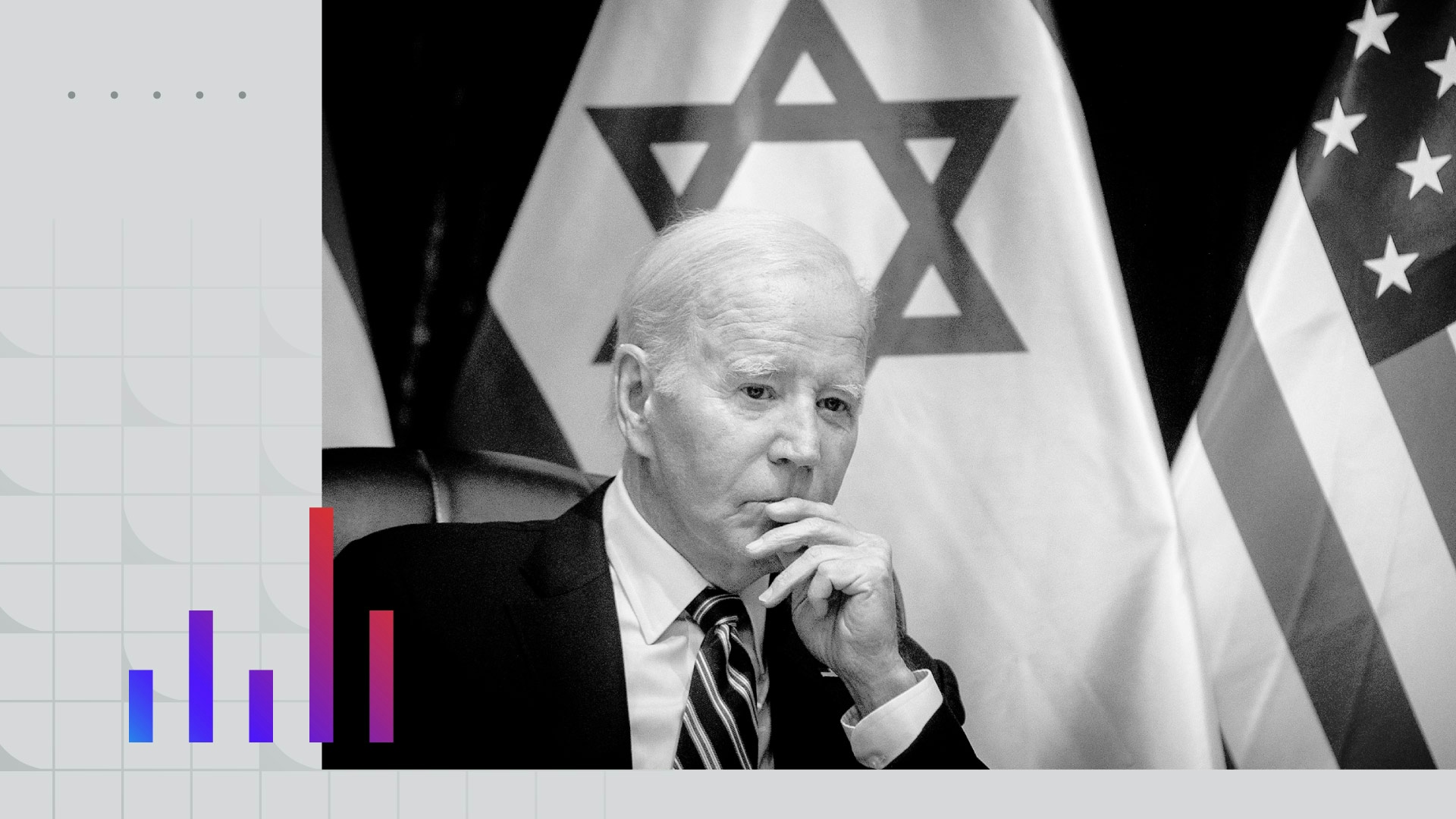
Global Politics
25+ Charts Exploring Americans' Views on U.S. Foreign Policy
Report summary
This Chart Pack compiles over 25 charts on Americans’ views of U.S. foreign policy, including which issues they find most important overall broken down by party affiliation, whether public opinion skews toward isolationism or engagement, and whether voters favor multilateral solutions to global economic and military challenges or prefer to go it alone. The charts pair Morning Consult’s crosscutting U.S. Foreign Policy Sentiment Indexes — which measure voters’ attitudes toward isolationism and multilateralism — with topical data on Democrats’ and Republicans’ evolving views on U.S.-China and U.S.-E.U. relations, foreign trade and investment, and more to provide holistic, high-frequency insights into Americans’ foreign policy preferences. These charts are updated quarterly in our U.S. Foreign Policy Tracker.
Key Takeaways
- Terrorism remains a top foreign policy priority for U.S. voters. The issue is the second most cited among the electorate, though Republicans are nearly twice as likely to rank it as a top five issue compared with Democrats.
- The latest Israel-Hamas war is the sixth-most selected top five priority for U.S. voters. At 31%, Republicans are the most likely to rank it as a top five concern, while 29% of Democrats agree.
- Republican voters’ support for isolationism reaches an all-time high. A record 51% of Republican voters favor greater isolationism in U.S. foreign policy, up 6 percentage points since August. GOP voters’ increasing desire for an isolationist foreign policy comes as a growing number of Republican lawmakers on Capitol Hill have raised objections to sending more aid to Ukraine and amid the onset of the conflict in Israel.
- Voters are warming to the idea of the United States resolving disputes in coordination with its allies rather than going it alone. The shares of voters who favor such coordination to resolve military and economic disputes are near all-time highs. This cooperation is favored by pluralities of Democrats and Republicans, and bodes well for coordinating a multilateral response to the Israel-Hamas conflict. See here for our latest analysis of U.S. voters’ views on the conflict.
- As the United States struggles with a surge in unauthorized border crossings, U.S. voters’ concerns about immigration are rising. Voters are most likely to rank immigration as their top foreign policy priority, up from third place in July. The uptick is being fueled by voters of both parties, with the shares of Democrats and Republicans who prioritize immigration increasing 10 points and 11 points, respectively, between July and October.
Methodology
The U.S. Foreign Policy Tracker relies on data collected through Morning Consult’s proprietary survey research capabilities. Interviews are conducted online.
All data featured in the tracker derives from surveys conducted among representative samples of roughly 2,000 registered voters each, with unweighted margins of error of +/-2 percentage points. Data are weighted to approximate representative samples of U.S. voters. Morning Consult updated its weights for U.S. adults on Jan. 1, 2023.
Dates indicated in all charts correspond to the last day of survey fielding for each wave. Surveys were conducted weekly through Nov. 6, 2022, and monthly thereafter.
Indexes of U.S. isolationism and engagement: The thematic issue areas, each composed of two data series, include (1) soft power and foreign aid, covering attitudes toward involvement in other countries’ affairs and foreign aid provision; (2) overseas military engagement, covering support for U.S. troop deployments and involvement in military conflicts; and (3) trade and investment policies, covering preferences toward tariffs on foreign goods and barriers to inward foreign investment. Each index is computed as a simple average of shares corresponding to response levels (isolationism, stability and engagement) across all six component data series.
Indexes of multilateralism and unilateralism: The thematic issue areas, each composed of a single data series, address three distinct aspects of U.S. foreign policy, including (1) policy coordination via diplomatic forums, covering attitudes toward U.S. involvement in international organizations; (2) military policy coordination, covering attitudes toward addressing global military disputes in coordination with U.S. partners and allies as opposed to going it alone; and (3) economic policy coordination, covering the same attitudes in the context of global economic disputes. Each index is computed as a simple average of shares corresponding to response levels (multilateralism, stability and unilateralism) across all three component data series.
A methodological companion memo can be found here.
About the authors
Jon Reid previously worked at Morning Consult as a research editor for domestic and world politics.
Jason I. McMann leads geopolitical risk analysis at Morning Consult. He leverages the company’s high-frequency survey data to advise clients on how to integrate geopolitical risk into their decision-making. Jason previously served as head of analytics at GeoQuant (now part of Fitch Solutions). He holds a Ph.D. from Princeton University’s Politics Department. Follow him on Twitter @jimcmann. Interested in connecting with Jason to discuss his analysis or for a media engagement or speaking opportunity? Email [email protected].

